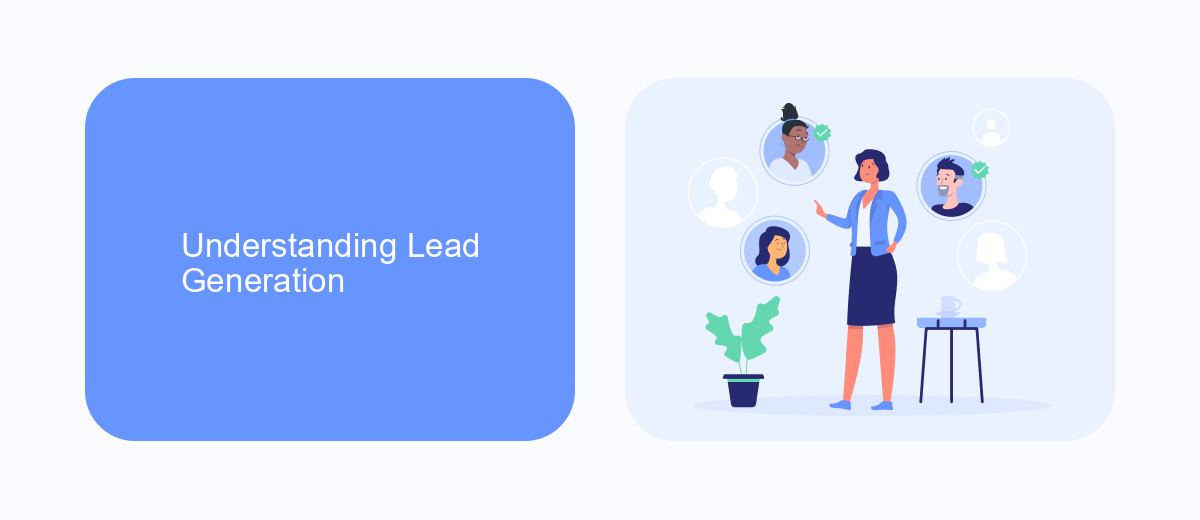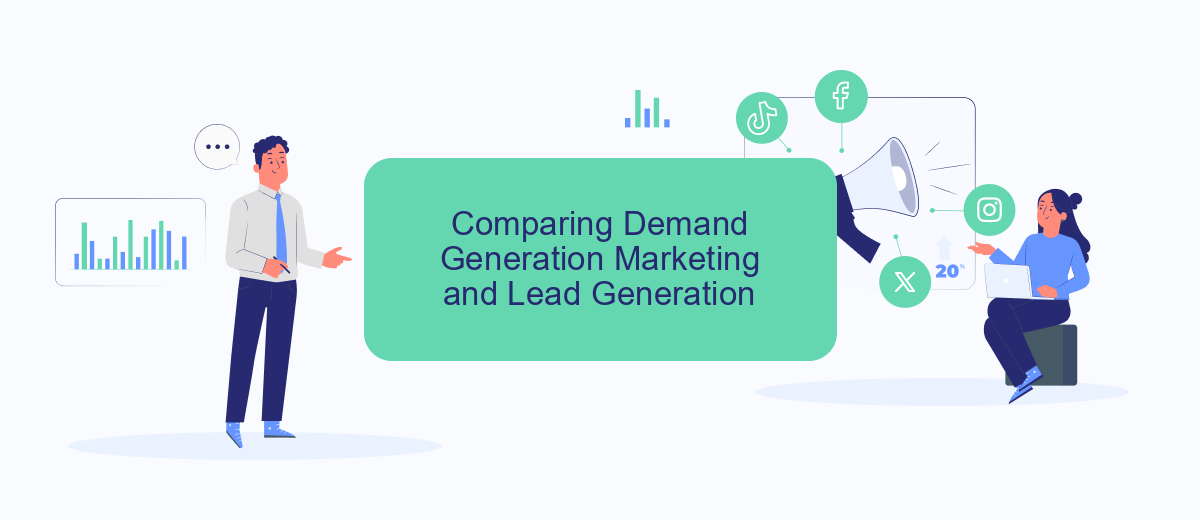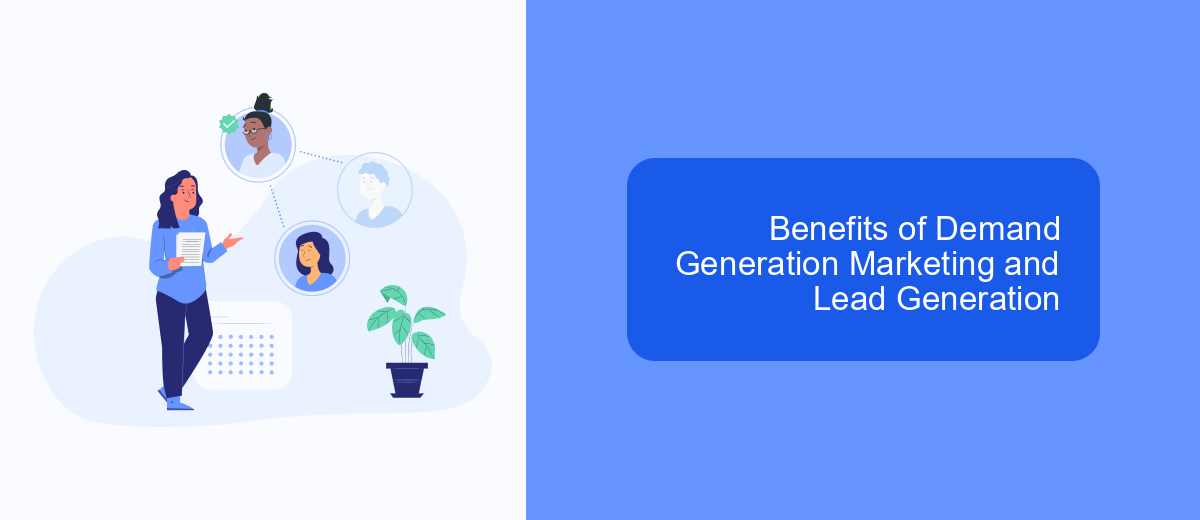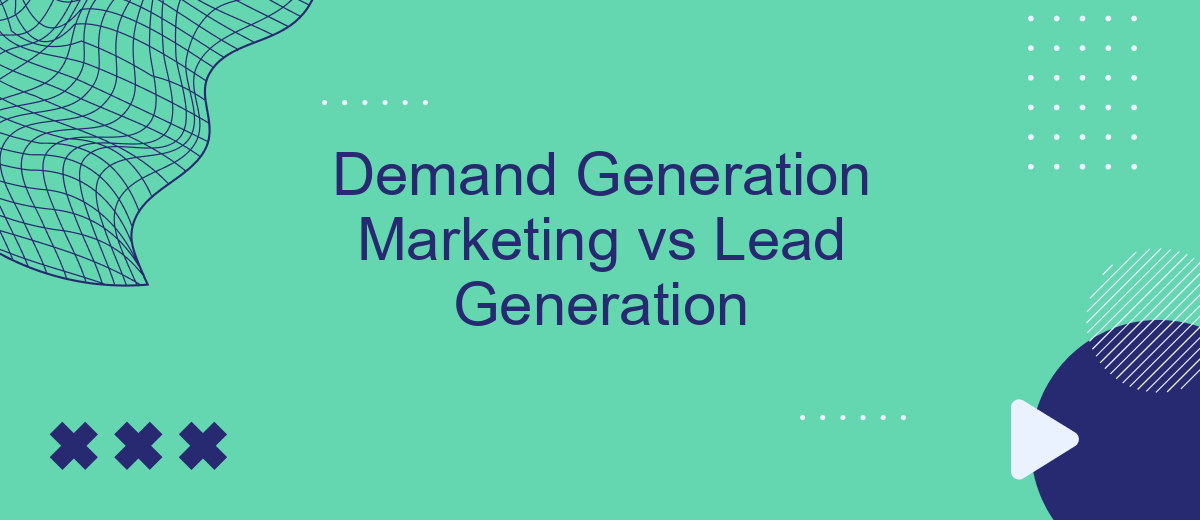In the ever-evolving landscape of digital marketing, understanding the distinction between demand generation and lead generation is crucial for crafting effective strategies. While both aim to drive business growth, they operate at different stages of the customer journey. This article delves into the key differences, benefits, and tactics of demand generation marketing versus lead generation, helping you optimize your approach for maximum impact.
Defining Demand Generation Marketing
Demand Generation Marketing focuses on creating awareness and interest in a company's products or services. Unlike lead generation, which aims to capture contact information for potential customers, demand generation seeks to build a strong brand presence and drive long-term engagement.
- Content Marketing: Creating valuable content to attract and educate potential customers.
- SEO: Optimizing your website to rank higher in search engine results.
- Social Media Marketing: Engaging with your audience on social platforms.
- Webinars and Events: Hosting events to showcase expertise and build relationships.
- Email Marketing: Sending informative and relevant emails to nurture prospects.
Effective demand generation requires a strategic approach and often involves integrating various marketing tools and platforms. Services like SaveMyLeads can streamline this process by automating lead capture and data synchronization, ensuring that all marketing efforts are cohesive and efficient. By leveraging these tools, businesses can better manage their campaigns and drive higher engagement.
Understanding Lead Generation

Lead generation is a crucial aspect of any marketing strategy, focusing on identifying and cultivating potential customers for a business’s products or services. This process involves various tactics such as content marketing, email campaigns, social media engagement, and search engine optimization (SEO) to attract and convert prospects into leads. The primary goal is to gather contact information, like email addresses or phone numbers, from interested individuals who have shown an interest in the company’s offerings.
To streamline and enhance lead generation efforts, businesses often leverage automation tools and integration services. One such service is SaveMyLeads, which simplifies the process by automatically sending leads from various sources directly to your CRM or email marketing platform. This ensures that no potential lead is overlooked and helps maintain a steady flow of new prospects. By integrating SaveMyLeads into your marketing strategy, you can save time, reduce manual data entry, and focus more on nurturing and converting leads into loyal customers.
Comparing Demand Generation Marketing and Lead Generation

Demand Generation Marketing and Lead Generation are two crucial strategies in the world of marketing, each serving distinct purposes. While both aim to attract potential customers, their methods and goals differ significantly.
- Objective: Demand Generation focuses on creating awareness and interest in a product or service, whereas Lead Generation aims to capture contact information from interested prospects.
- Approach: Demand Generation uses content marketing, social media, and webinars to educate and engage a broad audience. Lead Generation, on the other hand, often involves targeted campaigns using forms, landing pages, and calls-to-action to collect leads.
- Tools: Platforms like SaveMyLeads can streamline the integration of marketing tools, enhancing both Demand and Lead Generation efforts by automating data transfer and improving efficiency.
In summary, while Demand Generation and Lead Generation are complementary, they serve different stages of the customer journey. Understanding and effectively implementing both can significantly boost a company's marketing success. By leveraging tools like SaveMyLeads, businesses can optimize their strategies and achieve better results.
Benefits of Demand Generation Marketing and Lead Generation

Demand Generation Marketing and Lead Generation are both critical strategies for driving business growth, each offering unique benefits. Demand Generation Marketing focuses on creating awareness and interest in your products or services, nurturing potential customers through educational content, and building brand reputation. This approach helps in establishing a strong market presence and long-term customer relationships.
Lead Generation, on the other hand, is more targeted towards capturing specific information from potential customers who have shown interest in your offerings. This data is then used to convert these prospects into actual customers through personalized marketing efforts. By focusing on qualified leads, businesses can achieve higher conversion rates and more efficient sales processes.
- Increased brand awareness and recognition
- Higher quality leads and improved conversion rates
- Enhanced customer engagement and loyalty
- Streamlined marketing and sales efforts
Integrating both strategies can be highly effective. Utilizing services like SaveMyLeads can automate the process of capturing and managing leads, ensuring seamless data flow between marketing platforms and CRM systems. This integration helps in optimizing both demand generation and lead generation efforts, leading to better business outcomes.


Best Practices for Demand Generation Marketing and Lead Generation
To excel in demand generation marketing, focus on creating high-quality content that resonates with your target audience. Utilize data analytics to understand customer behavior and preferences, and tailor your messaging accordingly. Leverage social media platforms and email marketing to distribute content and engage with potential customers. Additionally, consider utilizing automation tools like SaveMyLeads to streamline your marketing efforts and ensure seamless integration between various platforms, enhancing your ability to capture and nurture leads.
For lead generation, prioritize building a strong online presence through SEO and paid advertising. Use landing pages and forms to capture visitor information effectively. Implement a robust CRM system to track and manage leads throughout the sales funnel. Engage with leads promptly and personalize your communication to build trust and rapport. SaveMyLeads can be instrumental in automating lead capture and integration processes, ensuring no potential lead is overlooked and improving overall efficiency in your lead generation strategy.
FAQ
What is the primary difference between Demand Generation Marketing and Lead Generation?
Which strategy should be prioritized first, Demand Generation or Lead Generation?
How can automation tools assist in Demand Generation and Lead Generation?
What metrics are important for measuring the success of Demand Generation campaigns?
Can Demand Generation and Lead Generation be executed simultaneously?
Are you using Facebook Lead Ads? Then you will surely appreciate our service. The SaveMyLeads online connector is a simple and affordable tool that anyone can use to set up integrations for Facebook. Please note that you do not need to code or learn special technologies. Just register on our website and create the necessary integration through the web interface. Connect your advertising account with various services and applications. Integrations are configured in just 5-10 minutes, and in the long run they will save you an impressive amount of time.
